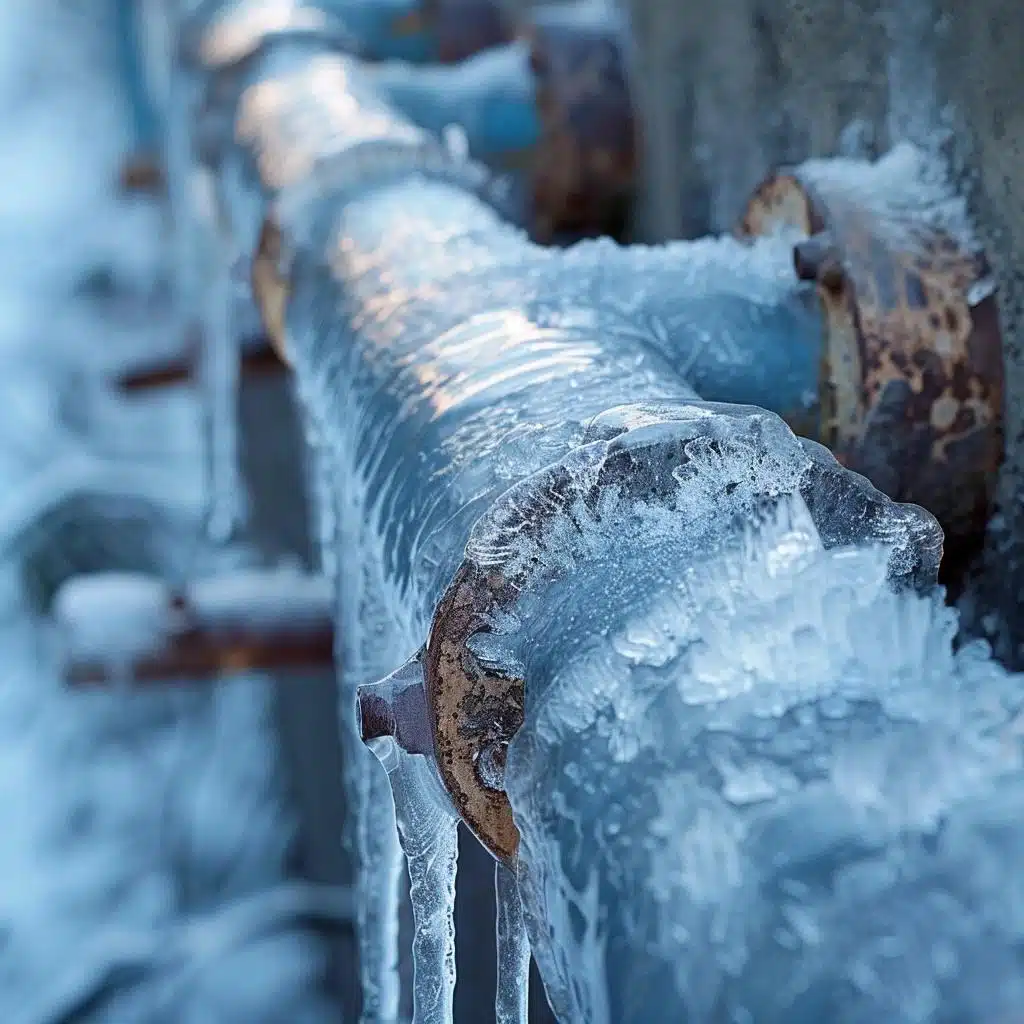Advice for Preventing Frozen Plumbing in Cold Weather: Professional Advice
Advice for Preventing Frozen Plumbing in Cold Weather: Professional Advice
Blog Article
We have found this post on Winter Plumbing Precautions: Preventing Frozen Pipes directly below on the net and figured it made perfect sense to relate it with you on my blog.

Cold weather can wreak havoc on your plumbing, particularly by freezing pipes. Below's just how to prevent it from happening and what to do if it does.
Introduction
As temperature levels decrease, the threat of frozen pipes rises, potentially resulting in costly fixings and water damage. Comprehending exactly how to prevent frozen pipes is vital for home owners in cold climates.
Comprehending Icy Pipelines
What creates pipelines to freeze?
Pipes ice up when exposed to temperature levels listed below 32 ° F (0 ° C) for extended durations. As water inside the pipes freezes, it expands, taxing the pipe walls and potentially creating them to rupture.
Dangers and damages
Icy pipelines can lead to water supply disturbances, property damage, and expensive fixings. Ruptured pipes can flooding homes and trigger substantial structural damages.
Indications of Frozen Piping
Determining icy pipes early can stop them from rupturing.
How to identify icy pipelines
Search for lowered water flow from faucets, uncommon odors or noises from pipes, and noticeable frost on subjected pipes.
Prevention Tips
Insulating prone pipelines
Cover pipelines in insulation sleeves or utilize heat tape to safeguard them from freezing temperatures. Focus on pipes in unheated or exterior areas of the home.
Heating techniques
Keep indoor spaces appropriately heated up, especially areas with plumbing. Open closet doors to permit cozy air to distribute around pipelines under sinks.
Securing Outdoor Pipes
Yard pipes and outside taps
Disconnect and drain pipes yard pipes prior to wintertime. Set up frost-proof faucets or cover outdoor faucets with insulated caps.
What to Do If Your Pipelines Freeze
Immediate actions to take
If you presume icy pipelines, keep faucets open up to relieve stress as the ice melts. Use a hairdryer or towels soaked in warm water to thaw pipelines gradually.
Long-Term Solutions
Architectural changes
Think about rerouting pipelines far from exterior walls or unheated areas. Include additional insulation to attic rooms, basements, and crawl spaces.
Updating insulation
Purchase premium insulation for pipes, attics, and walls. Appropriate insulation assists preserve constant temperature levels and lowers the risk of frozen pipelines.
Verdict
Protecting against frozen pipelines calls for aggressive procedures and fast actions. By recognizing the reasons, indications, and preventive measures, property owners can safeguard their pipes throughout winter.
Helpful Tips to Prevent Frozen Pipes this Winter
UNDERSTANDING THE BASICS: WHY PIPES FREEZE AND WHY IT’S A PROBLEM
Water freezing inside pipes is common during the winter months, but understanding why pipes freeze, and the potential problems it can cause is crucial in preventing such incidents. This section will delve into the basics of why pipes freeze and the associated problems that may arise.
THE SCIENCE BEHIND FROZEN PIPES
When water reaches freezing temperatures, it undergoes a physical transformation and solidifies into ice. This expansion of water as it freezes is the primary reason pipes can burst. As the water inside the pipe freezes, it expands, creating immense pressure on the walls. If the pressure becomes too great, the pipe can crack or rupture, leading to leaks and water damage.
FACTORS THAT CONTRIBUTE TO PIPE FREEZING
Low Temperatures: Extremely cold weather, especially below freezing, increases the risk of pipes freezing. Uninsulated or Poorly Insulated Pipes: Pipes located in unheated areas, such as basements, crawl spaces, or attics, are more prone to freezing. Insufficient insulation or lack of insulation altogether exacerbates the problem. Exterior Wall Exposure: Pipes running along exterior walls are susceptible to freezing as they encounter colder temperatures outside. Lack of Heating or Temperature Regulation: Inadequate heating or inconsistent temperature control in your home can contribute to frozen pipes. PROBLEMS CAUSED BY FROZEN PIPES
- Pipe Bursting: As mentioned earlier, the expansion of water as it freezes can cause pipes to burst, resulting in significant water damage.
- Water Damage: When pipes burst, it can lead to flooding and water damage to your property, including walls, ceilings, flooring, and personal belongings.
- Structural Damage: Prolonged exposure to water from burst pipes can compromise the structural integrity of your home, leading to costly repairs.
- Mold and Mildew Growth: Excess moisture from water damage can create a favorable environment for mold and mildew growth, posing health risks to occupants.
- Disrupted Water Supply: Frozen pipes can also result in a complete or partial loss of water supply until the issue is resolved.
WHY CERTAIN PIPES ARE MORE PRONE TO FREEZING
- Location: Pipes located in unheated or poorly insulated areas, such as basements, crawl spaces, attics, or exterior walls, are at higher risk of freezing.
- Exterior Pipes: Outdoor pipes, such as those used for irrigation or exposed plumbing, are particularly vulnerable to freezing as they are directly exposed to the elements.
- Supply Lines: Pipes that carry water from the main water supply into your home, including the main water line, are critical to protect as freezing in these lines can affect your entire plumbing system.
- Underground Pipes: Pipes buried underground, such as those connected to sprinkler systems or outdoor faucets, can be susceptible to freezing if not properly insulated.
https://busybusy.com/blog/helpful-tips-to-prevent-frozen-pipes-this-winter/

I found that post about 6 Ways to Prevent Frozen Pipes while surfing the search engines. Enjoyed our review? Please quickly share it. Help somebody else discover it. Thanks for taking the time to read it.
Call Today Report this page